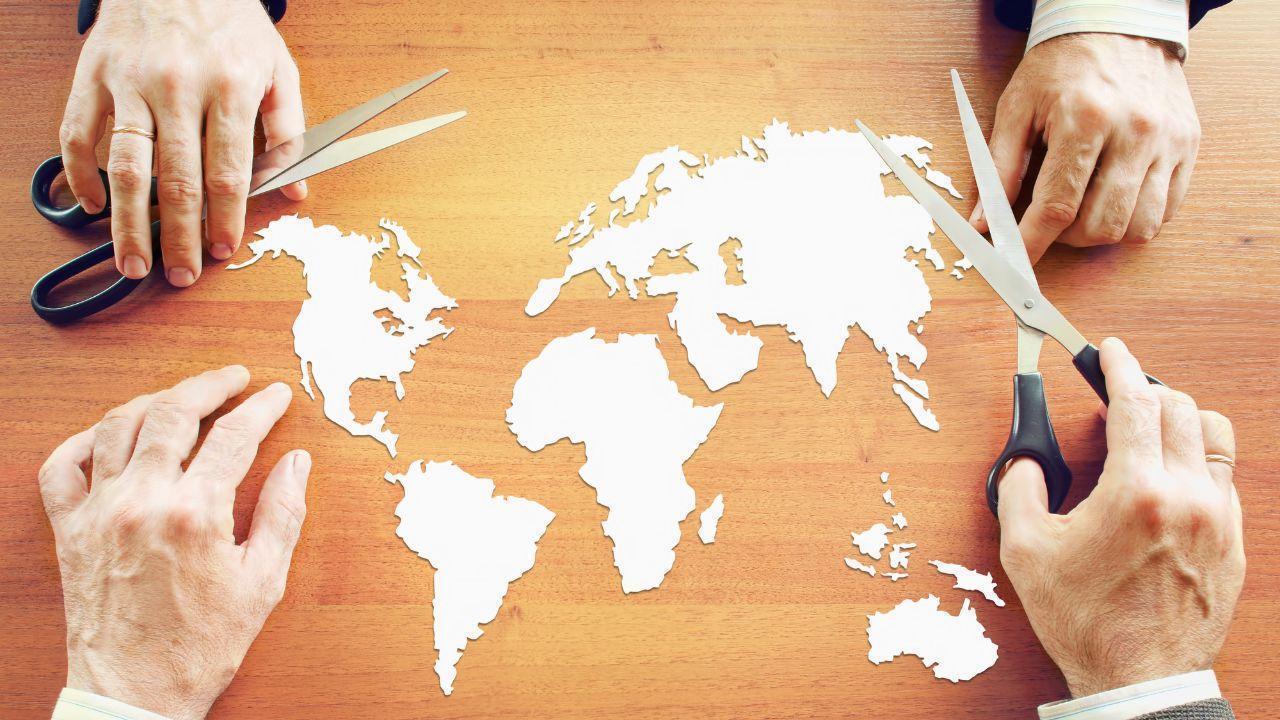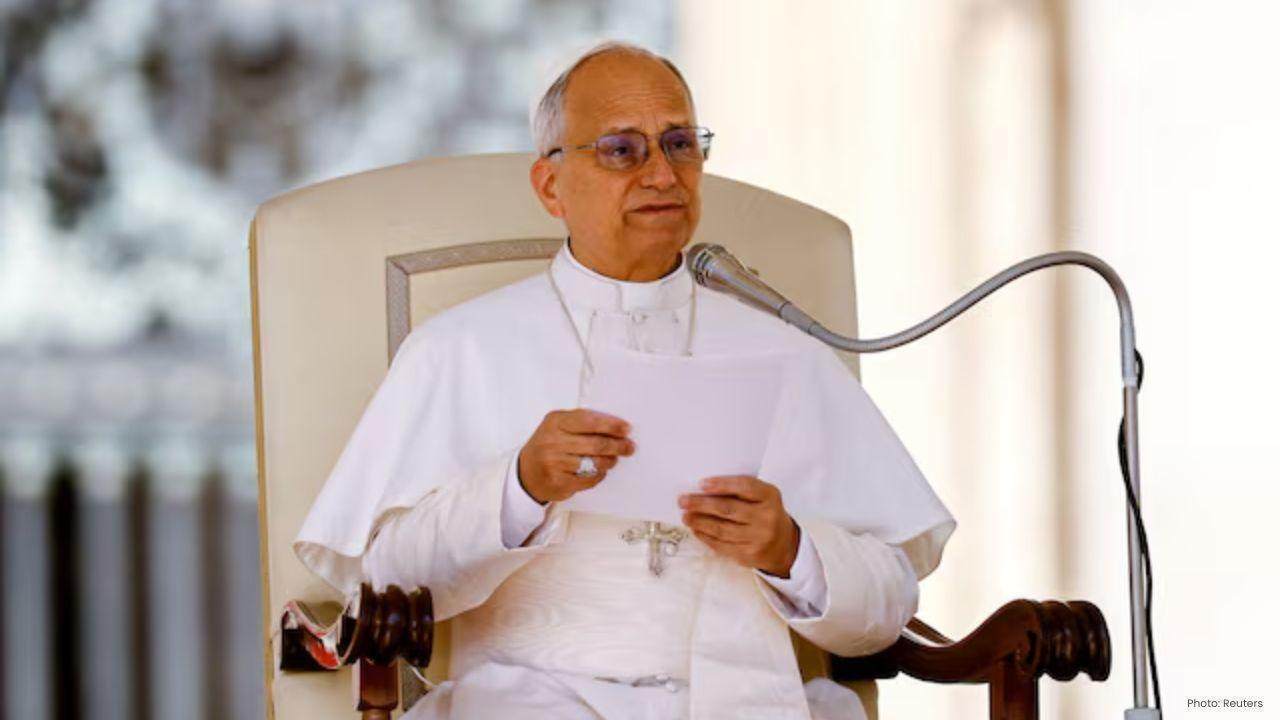
Post by : Vansh
In the 21st century, the world stands at a critical juncture where geopolitics defines the future of nations and the stability of the global order. Borders, resources, ideologies, and technology are reshaping how countries interact, compete, and cooperate. This century has witnessed both remarkable progress in diplomacy and devastating conflicts, showing how international affairs remain a delicate balance between unity and rivalry. At this crossroads, understanding the drivers of global politics is essential to anticipating future challenges and opportunities.
Historically, geopolitics has been about power, territory, and control over critical regions. Empires rose and fell based on their ability to dominate trade routes, seas, and resources. In the 20th century, the Cold War became the defining conflict of ideologies, pitting capitalism against communism. Today, however, the landscape is far more complex. While military strength remains important, economic influence, technological innovation, and even climate policies are crucial elements of international strategy.
Unlike the Cold War’s bipolar structure, today’s international relations are multipolar. The United States, China, and Russia remain dominant players, but emerging powers such as India, Brazil, and South Africa are reshaping the balance of influence. This multipolarity makes global decision-making more inclusive but also more fragmented, as different blocs pursue conflicting agendas. For instance, the rise of BRICS highlights how emerging economies are challenging Western-dominated institutions like the IMF and World Bank.
Technology has become a defining feature of 21st-century global politics. From artificial intelligence to space exploration, nations now compete not only for land and resources but also for digital dominance. Cybersecurity threats, misinformation campaigns, and technological espionage are shaping diplomatic strategies. The race for 5G networks, renewable energy technologies, and space dominance underscores how geopolitics is no longer confined to Earth’s borders but extends into the digital and cosmic realms.
Access to natural resources continues to be a major driver of conflict. Oil, natural gas, and rare earth minerals are at the heart of global competition. Energy politics, particularly in regions like the Middle East and the Arctic, demonstrate how resource control can shape alliances and rivalries. For example, Russia’s dominance in natural gas supplies impacts European energy security, while China’s investments in Africa highlight how nations seek long-term access to vital commodities.
The 21st century has no shortage of regional flashpoints. The South China Sea remains a hotspot of territorial disputes, involving China, the Philippines, Vietnam, and the United States. The Russia-Ukraine war has redefined Europe’s security landscape, while conflicts in the Middle East continue to destabilize the region. These crises reveal how geopolitics is a constant balancing act between military power and diplomatic negotiation. They also show how local disputes often escalate into global concerns, drawing in multiple stakeholders.
One of the most overlooked yet critical dimensions of modern geopolitics is climate change. Rising sea levels, natural disasters, and resource scarcity create new security challenges. Countries vulnerable to climate disasters seek international aid, while developed nations debate the responsibilities of reducing carbon emissions. Climate diplomacy, as seen in agreements like the Paris Accord, is now a central pillar of international relations, proving that environmental challenges are inseparable from political and economic agendas.
Geopolitical conflicts often lead to humanitarian crises, forcing millions to flee their homes. Refugee movements from Syria, Afghanistan, and parts of Africa have created political tensions in Europe and beyond. These crises highlight how humanitarian concerns intersect with global politics. Nations must balance security with compassion, and the inability to find solutions often fuels political polarization within and between states.
Alliances remain vital in maintaining balance. NATO continues to play a central role in collective defense, while the United Nations serves as a forum for global cooperation. However, these institutions face growing criticism for inefficiency and lack of inclusivity. Emerging regional alliances and new platforms for cooperation, such as the Shanghai Cooperation Organisation, reflect the desire of nations to create alternative structures that better represent today’s multipolar world.
Looking forward, international relations will be shaped by how nations navigate competition and cooperation. Technology, climate change, and resource management will remain central challenges. Multipolarity may bring diversity to decision-making, but it will also demand stronger frameworks for dialogue and conflict resolution. The success of diplomacy will depend on whether countries can build trust despite deep divisions.
In the coming decades, nations that adapt to new realities, invest in sustainable technologies, and foster strong regional partnerships will emerge as leaders in shaping the global politics of the future.
The information in this article is provided for general awareness and educational purposes only. It should not be considered professional advice or the official viewpoint of MiddleEastBulletin news. Readers are encouraged to verify facts through multiple trusted sources before drawing conclusions.
#trending #latest #Geopolitics #GlobalPolitics #InternationalRelations #WorldAffairs #ConflictResolution #21stCenturyDiplomacy #GlobalStrategy #PeaceAndSecurity #GeopoliticalTrends #GlobalTensions #MiddleEastBulletin #MiddleEastNews #BreakingNews #LiveUpdates #BulletinLive #BusinessNews #WorldHeadlines #SocialUpdates #TechNews #HealthUpdates #EducationNews #ClimateWatch #SportsBuzz #TravelMiddleEast #VoiceOfTheMiddleEast #TrendingNow










Dodgers Win Game 1 of Wild Card Series Against Reds
The Dodgers beat the Reds 10-5 in Game 1 of the Wild Card Series. Ohtani and Hernández hit two home

Tyreek Hill Suffers Major Knee Injury, Out for the Season
Miami Dolphins' star receiver Tyreek Hill tears ACL and other ligaments in win over Jets; season-end

China Raises Flag at Disputed Shoal in National Day Ceremony
On China’s National Day, its coast guard held a flag ceremony at Scarborough Shoal, asserting contro

Netanyahu Bets Big on Trump’s Gaza Plan, Faces Home Risks
Netanyahu supports Trump’s Gaza peace plan to regain global support, but his far-right partners in I

Ukraine’s frontline cities face fear but refuse to give up
In Ukraine’s frontline towns, people live with fear and danger daily, yet they show courage, refusin

US Government Shuts Down After Congress Fails to Agree
On October 1, 2025, the U.S. government began a partial shutdown due to Congress's inability to pass